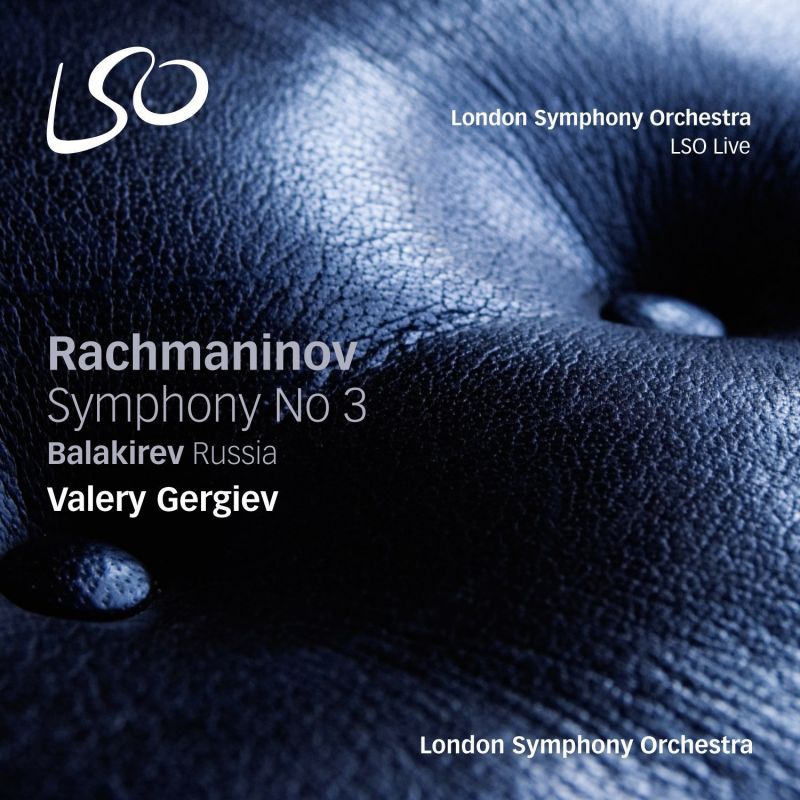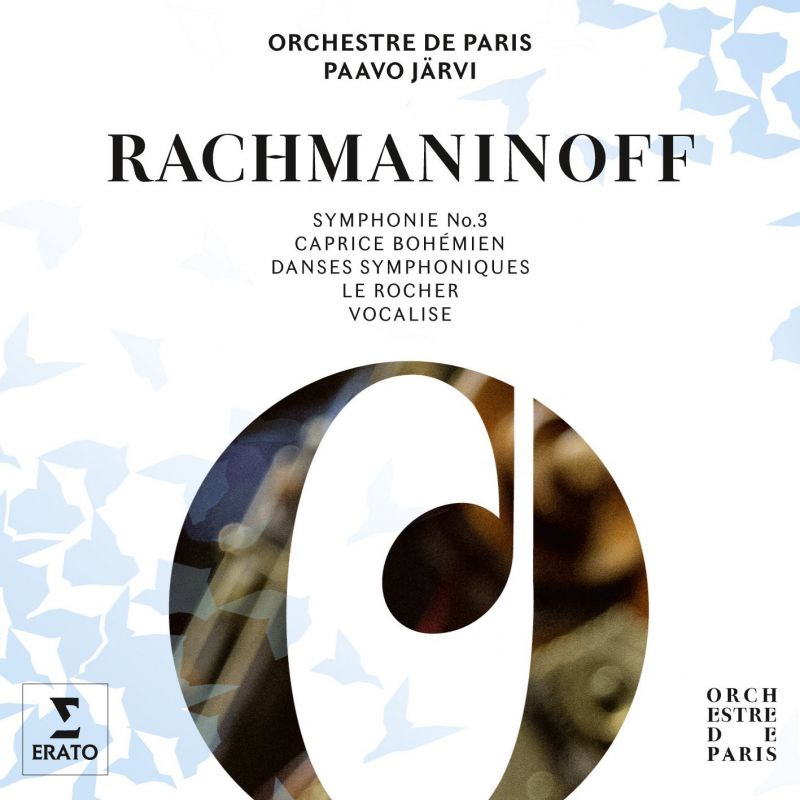RACHMANINOV Symphony No 3
View record and artist detailsRecord and Artist Details
Composer or Director: Mily Alexeyevich Balakirev, Sergey Rachmaninov
Genre:
Orchestral
Label: LSO Live
Magazine Review Date: AW2015
Media Format: Super Audio CD
Media Runtime: 57
Mastering:
DDD
Catalogue Number: LSO0779

Tracks:
| Composition | Artist Credit |
|---|---|
| Second Overture on Russian Themes, 'Russia' |
Mily Alexeyevich Balakirev, Composer
London Symphony Orchestra Mily Alexeyevich Balakirev, Composer Valery Gergiev, Conductor |
| Symphony No. 3 |
Sergey Rachmaninov, Composer
London Symphony Orchestra Sergey Rachmaninov, Composer Valery Gergiev, Conductor |
Composer or Director: Sergey Rachmaninov
Genre:
Orchestral
Label: Erato
Magazine Review Date: AW2015
Media Format: CD or Download
Media Runtime: 117
Mastering:
DDD
Catalogue Number: 2564 61957-9

Tracks:
| Composition | Artist Credit |
|---|---|
| Symphony No. 3 |
Sergey Rachmaninov, Composer
Orchestre de Paris Paavo Järvi, Conductor Sergey Rachmaninov, Composer |
| Caprice bohémien (Capriccio on gypsy themes) |
Sergey Rachmaninov, Composer
Orchestre de Paris Paavo Järvi, Conductor Sergey Rachmaninov, Composer |
| (The) Rock |
Sergey Rachmaninov, Composer
Orchestre de Paris Paavo Järvi, Conductor Sergey Rachmaninov, Composer |
| Symphonic Dances (cham) |
Sergey Rachmaninov, Composer
Orchestre de Paris Paavo Järvi, Conductor Sergey Rachmaninov, Composer |
| Vocalise |
Sergey Rachmaninov, Composer
Orchestre de Paris Paavo Järvi, Conductor Sergey Rachmaninov, Composer |
Author: David Gutman
Paavo Järvi is no speed merchant, and some might find his performance comparatively tame even if his technical control and formidable sense of logic are never in doubt. To clinch the deal, the band is made to sound far more voluptuous than its rival. This is so despite the fact that the live recording was made in the Salle Pleyel, subsequently abandoned by the orchestra in favour of higher-tech suburban quarters. Granted, Järvi’s pay-off is almost as mannered as Gergiev’s. Neither Previn (EMI, 8/77) nor Jansons (EMI, 12/93) interpolates a rallentando, the latter’s zippier approach throughout signalled by his elimination of the first-movement exposition repeat. Both Gergiev and Järvi provide the repeat, and I will certainly be revisiting the fine detailing of Järvi’s individualistic Parisian winds, never indulged at the expense of forward momentum.
Gergiev’s coupling is a Balakirev obscurity of mainly specialist interest. Järvi offers a slightly puzzling jumble of early and late Rachmaninov stretched over two sound carriers, the middle years being neglected save for the Vocalise (for which the booklet provides too early a composition date). Given in its purely orchestral guise, that piece is placed at the end of a second disc which starts with the composer’s swansong and proceeds by way of The Rock, which Tchaikovsky had admired in 1893. Perhaps it doesn’t matter when Järvi’s carefully prepared readings have such character and flair. The conductor attempts some spooky hesitations in the Symphonic Dances’ unnerving waltz movement, and he is sentimentally interventionist in the finale before revving up for one last climax (interrupted only by Rachmaninov’s unexpected restatement of his Orthodox chant at a not easily judged slower tempo). The concluding gong stroke is cut short. There must have been copious applause in the hall, but on both these releases the presence of an audience has been meticulously expunged.
Discover the world's largest classical music catalogue with Presto Music.

Gramophone Digital Club
- Digital Edition
- Digital Archive
- Reviews Database
- Full website access
From £8.75 / month
Subscribe
Gramophone Full Club
- Print Edition
- Digital Edition
- Digital Archive
- Reviews Database
- Full website access
From £11.00 / month
Subscribe
If you are a library, university or other organisation that would be interested in an institutional subscription to Gramophone please click here for further information.




